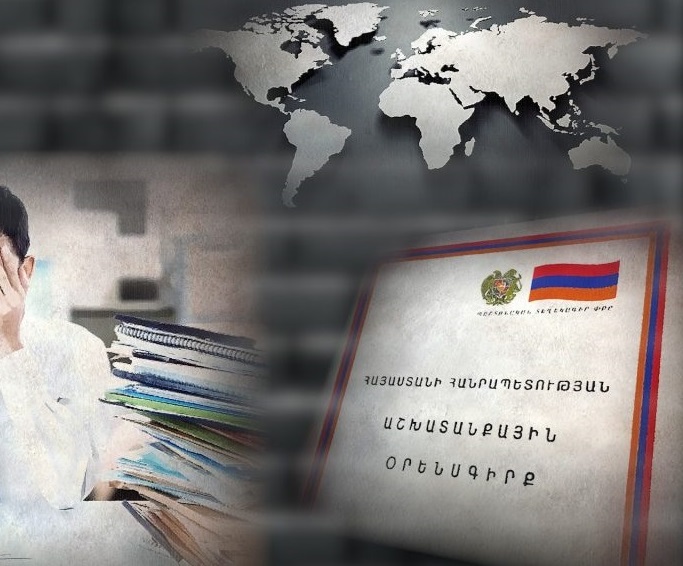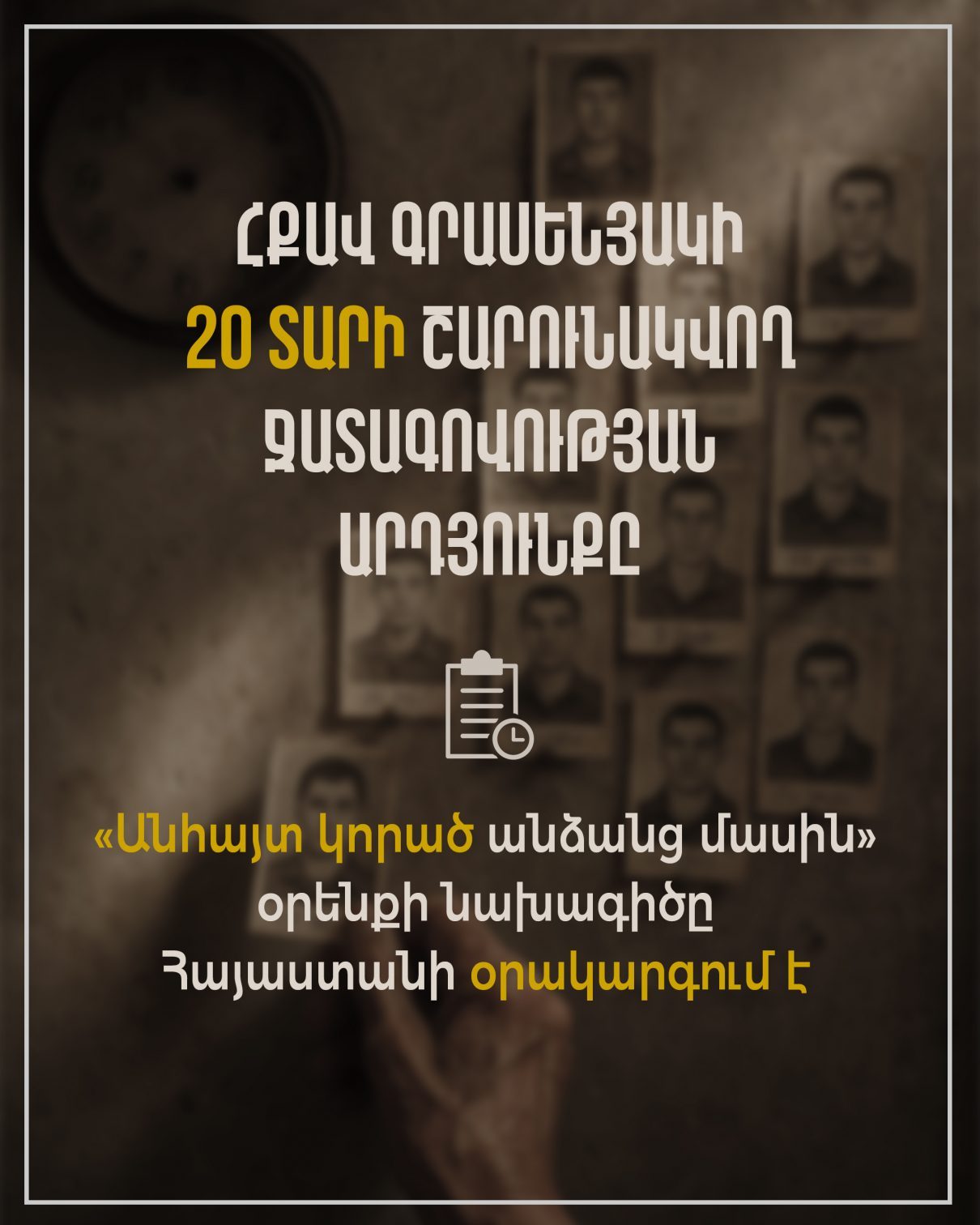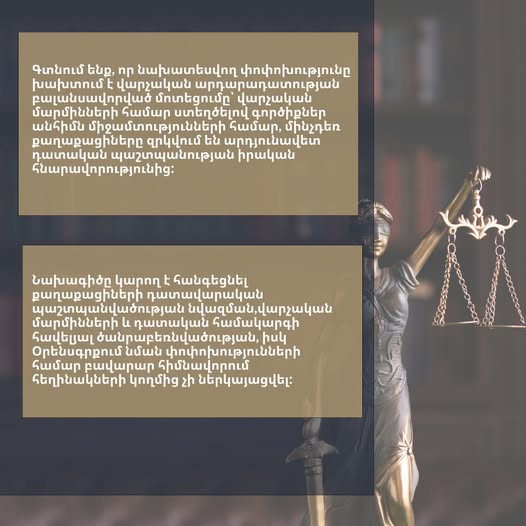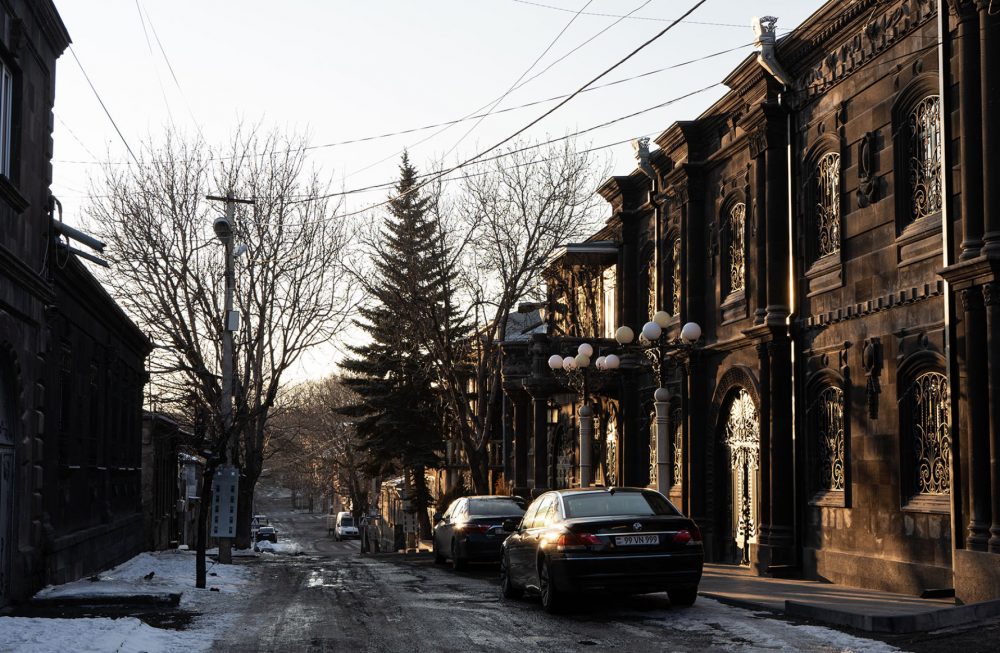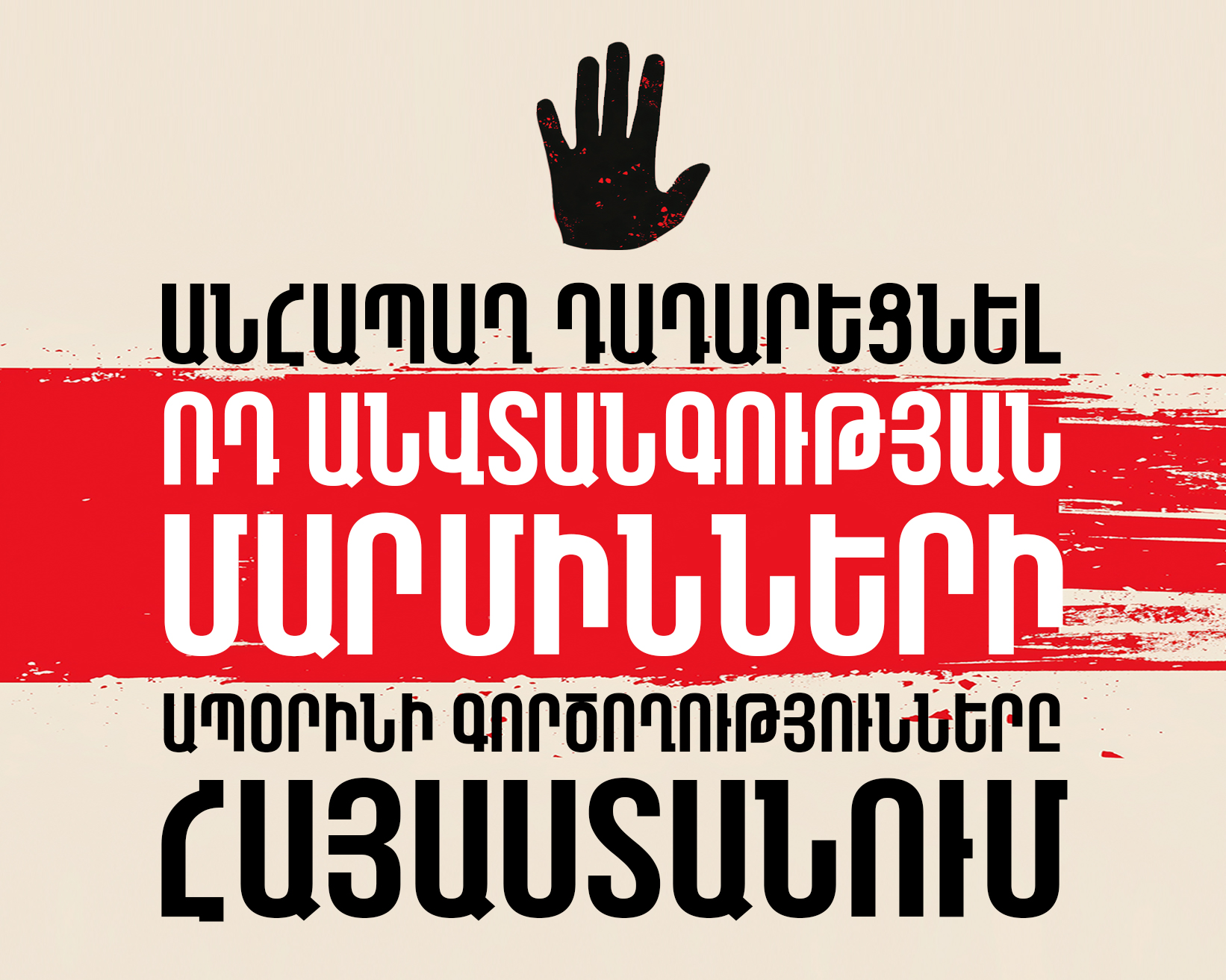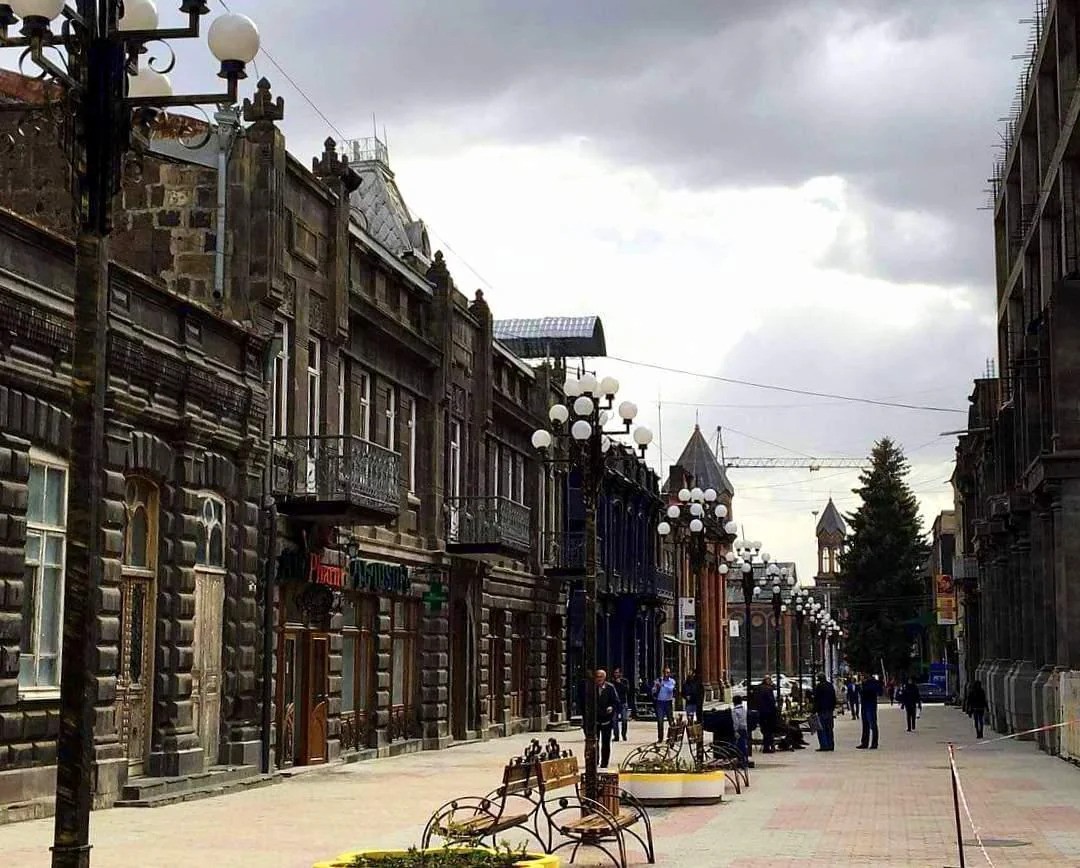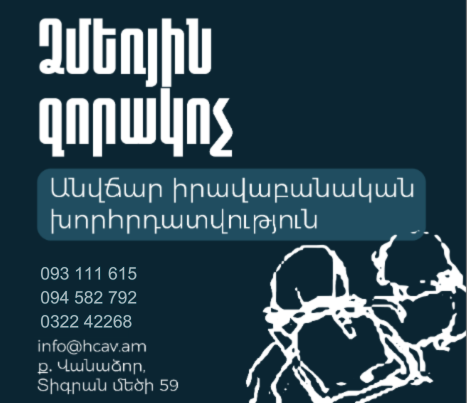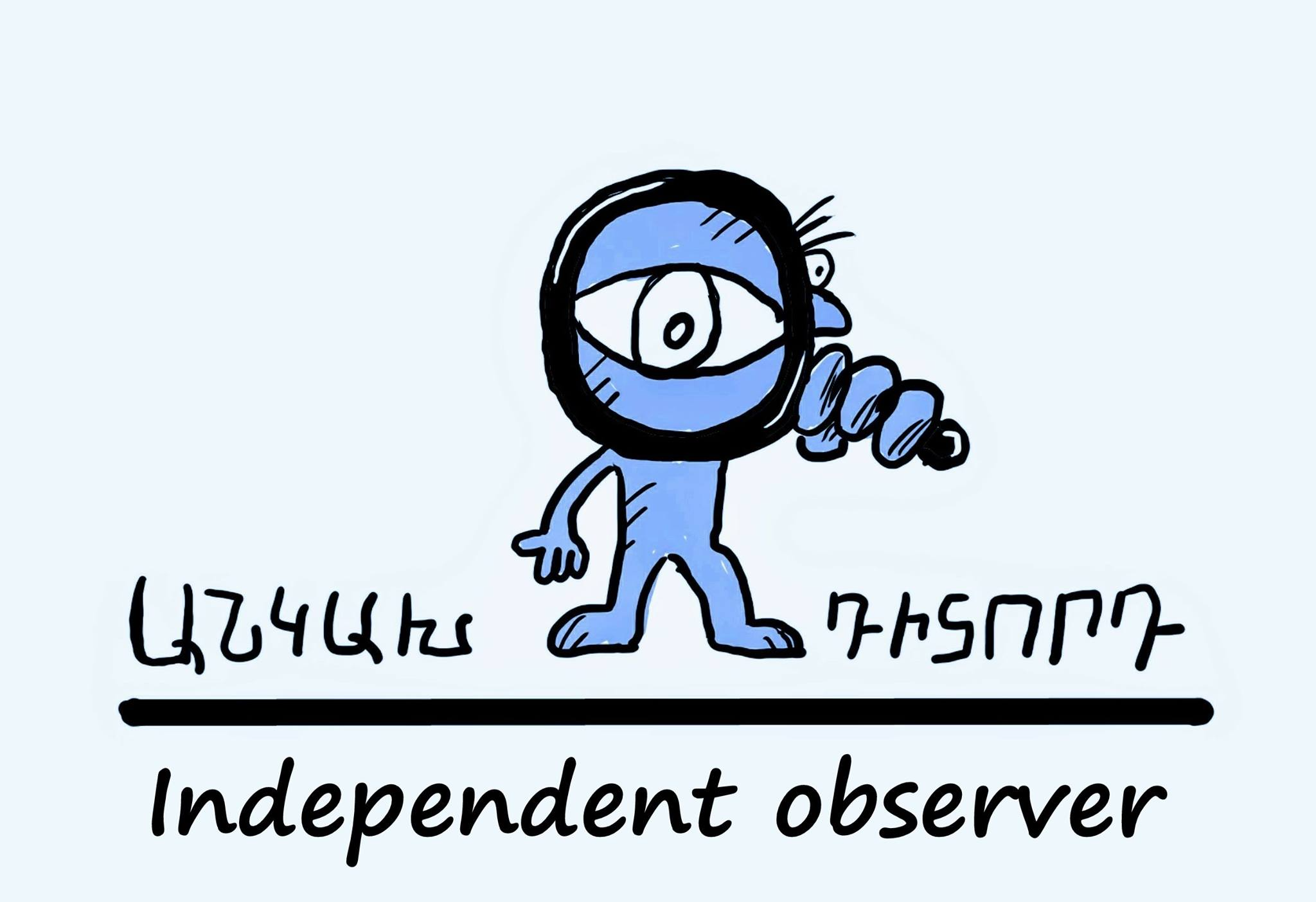




A judgment of acquittal for the one who lays the journalist down on asphalt: N. Avetisyan made an appeal with the support of HCA Vanadzor
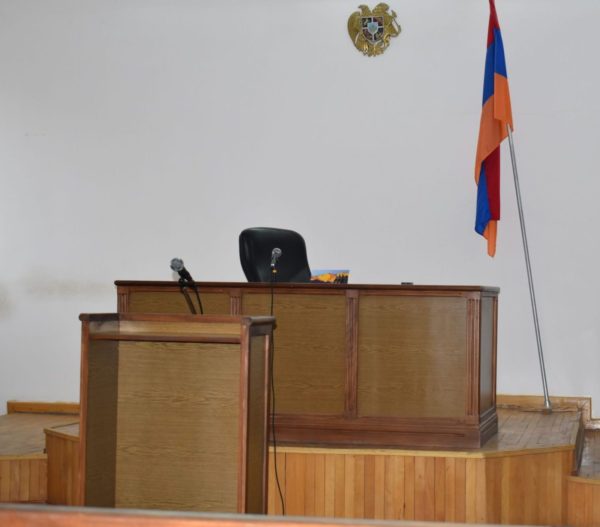
Activities | Legal Support | Legal Support | Project։ Stability of HCA Vanadzor in the light of democracy and human rights challenges in the Republic of Armenia 2020 | Publications | Narine Avetisyan | News
On 24 August 2020, Lori region General Jurisdiction Court published the judgment on the case of Narine Avetisyan, editor-in-chief of Lori TV company.
Let us remind that the incident took place on September 28, 2017, when Narine Avetisyan tried to shoot the process of asphalt pavement under heavy rain on the bridge near the Church of the Holy Mother of God (St. Astvatsatsin Church) in Vanadzor. N. Avetisyan was subjected to violence by Shinplus Ltd director Tigran Nazaryan, who, as Narine Avetisyan claims, forbade her to shoot the process, took her phone by force, threw her against the ground and deleted the photos and the video from her phone.
An accusation has been filed against Shinplus construction company director Tigran Nazaryan and employee of the same company Vrezh Khachatryan for committing an action envisaged under Part 1 of Article 164 (“Obstruction of legitimate professional activities of journalist”) of the RA Criminal Code. The mentioned persons kept on refusing to have committed this action.
HCA Vanadzor advocate Syuzanna Soghomonyan and later also Hayk Hakobyan undertook the protection of N. Avetisyan’s rights in court. During the litigation that lasted for 3 years, the judge was also changed: Susanna Gzogyan came to replace judge Lusine Abgaryan. The examination of the case continued presided by judge Susanna Gzogyan.
During the preliminary investigation, the results of the written examination of material evidence, as well as results of forensic computer technical expertise conclusion became known. Thus, 5 photos taken on that day were restored from Narine Avetisyan phone’s internal memory, however, the video shot on the same day could not be restored.
On 24 August 2020, the court made a decision to acquit Tigran Nazaryan and eliminate the restrictive measure of signature on not leaving. According to the legal analyses in the judgment, the Court properly investigated the proofs obtained in the frame of the case, assessed their credibility, admissibility and relevance and combined them in terms of being sufficient to resolve the case, investigated them comprehensively, fully and objectively and found that the charge brought against T. Nazaryan under Article 164 part 1 of the RA Criminal Code was not confirmed during the litigation. The judgment of acquittal was made with the reasoning presented below.
During both the preliminary investigation and the litigation, T. Nazaryan brought forth various substantiations to deny his participation in the crime committed. No proof was obtained in the frame of the criminal case that would refute his arguments. Moreover, the four witnesses gave testimonies acquitting T. Nazaryan. With regard to N. Avetisyan’s colleagues’ testimonies, the court found that they had no factual data which would proof that T. Nazaryan obstructed N. Avetisyan’s journalistic activity.
According to the analysis of the court, their testimonies merely substantiated the obstruction of N. Avetisyan’s professional activity.
When it comes to Vrezh Khachatryan, the court judged to recognize him guilty for committing an act envisaged under Article 164 part 1 of the RA Criminal Code and to exempt him from liability according to Article 75 of the same Code on the ground of expiration of the statute of limitations.
On September 21, on the day of the 29th anniversary of the independence of the Republic of Armenia, journalist Narine Avetisyan made a post about this on her Facebook page, “A JUDGMENT OF ACQUITTAL FOR THE ONE WHO LAY THE JOURNALIST DOWN ON ASPHALT,
Glory to Lori “fair” Court of General Jurisdiction and judge Susanna Gzogyan. You remember how they “lay” me on asphalt in 2017, don’t you? The criminal whom I recognized in front of the body of preliminary investigation among around ten persons, was Tigran Nazaryan, director of Shinplus Ltd. During the preliminary investigation and the trial, this person and his subordinates gave numerous contradicting testimonies, this is also true for the person who took his boss’s guilt on himself but didn’t manage to prove that it was him and not his boss. It seemed that judge Gzogyan, who was “administering” justice, should have not only been fair, but she should have simple put the facts together to make a judgment. Whatever. I lost this case, I lost to the Republic of Armenia, I lost in the General Jurisdiction Court of Lori region, I lost to the criminal Tigran Nazaryan, I lost because I was protecting the interests of my country and my community at night, before those who were laying asphalt under the rain. I will send this disgraceful judgment, made in post-revolutionary Armenia, to my journalist friends”.
Taking into account the apparent partiality and unfairness of the judgment, journalistic organizations made a statement, claiming
-From the RA Ethics and Disciplinary Committee of the RA Judiciary and RA Minister of Justice to examine this judicial case and initiate disciplinary proceedings in case of intentional or negligent violation of the norm of substantive or procedural law by judge Susanna Gzogyan ,
-From the Criminal Court of Appeal to overturn the judgment of the first instance, to ensure the comprehensive and impartial investigation of the case and hold liable those who used violence against the journalist.
On 23 September 2020, N. Avetisyan, who is the injured party in the case, with the support of HCA Vanadzor advocate Hayk Hakobyan, made an appeal to the RA Appeal Court by appealing the judicial act regarding the part of acquitting Tigran Nazaryan in the charge brought against him under Article 164 part 1 of the RA Criminal Code, as well as exempting Vrezh Khachatryan from criminal responsibility on the basis of expiration of the statute of limitations.
The injured party requested the Appeal Court to partly overturn Lori region General Jurisdiction Court judgment of 24 August 2020 and change it by recognizing Tigran Nazaryan guilty for committing an act envisaged under Article 164 part 1 of the Criminal Code and imposing a fine in the amount of AMD 400,000 and to impose a similar punishment for Vrezh Khachatryan.
Invoking legal positions of the RA Court of Cassation in the frame of similar cases, the injured party claimed that when making the judgment the court made a judicial mistake, i.e. a violation of procedural and substantive law, which had its impact on the outcome of the case. In particular, requirements of a number of articles of RA Criminal Procedural Code were violated. All the proofs present in the case were not assessed in combination, a biased attitude was manifested, as the Court found the defendants’ testimonies to be credible and dominant over the injured party’s testimonies.
In the appeal, it was mentioned regarding defendant T. Nazaryan’s arguments, that according to Article 25 of the RA Criminal Procedure Code, the body of investigation, the investigator, the prosecutor, the judge, guided by law, assess the proofs in combination with the other proofs based on their belief developed upon the comprehensive, full and objective investigation of the proofs.
No evidence shall have a predetermined force in criminal proceedings. The judge, as well as the agency for inquest, the investigator, or the prosecutor shall not deal with the evidence in a biased way or give more or less significance to ones in comparison with the others, before the examination of all the available evidence in accordance with a due process of law.
According to Article 104 part 1, in criminal cases any factual data are evidences, based on which, and as provided by law, the inquiry body, the investigator, the prosecutor and the court can determine whether or not crime has been committed, whether or not the crime has been committed by the accused, or whether or not the accused is guilty or innocent as well as other circumstances relevant to the case.
Part 2 of the same article establishes that the following can be considered as evidence in criminal proceedings: testimony by the suspect, accused, injured, witness, as well as the testimony of the suspect, accused or defendant in the frame of another criminal case related to the charge, testimony by convict, conclusion by an expert, material evidence, records of investigative and judicial actions, other documents. Each evidence is subject to assessment in terms of relevance and admissibility, and the combination of all the evidence is subject to assessment in terms of being sufficient for the resolution of the case.
With regard to exempting defendant V. Khachatryan from criminal liability as a result of expiration of the statute of limitations, the injured party drew the attention of the Appeal Court to Article 7 of the RA Criminal Code, “Each person who committed a crime is subject to the punishment envisaged by RA Criminal Code or other criminal legal influence to restore social justice, correct the one subjected to punishment, as well as to prevent new crimes”.
Exempting defendant V. Khachatryan from criminal liability as a result of the expiration of the statute of limitations already indicates that the punishment is unreal, abstract and imaginary. In such conditions, the aims of the punishment established by law are also not ensured, in particular, social justice is not restored, which entails violation fo the rights of the person adversely affected by the crime. Whereas, according to Article 61 of the Constitution, “Everyone shall have the right to effective judicial protection of his or her rights and freedoms”, and Article 63 establishes the right to a fair and public hearing of the relevant person’s case, within a reasonable time period, by an independent and impartial court. The same right is enshrined by Article 17 of the RA Criminal Procedure Code.
In terms of the statute of limitations, N. Avetisyan importantly recorded that the court received the criminal case on 23 February 2018 and months later, on November 7, the composition of the court was changed. Besides, the sessions were postponed for many times based on petitions by the defendant party, which led to the expiration of the timeframe of subjecting the relevant person to criminal liability. Whereas, as the injured party, she always conscientiously exercised her procedural rights.
Based on the aforementioned and on the condition that when making a judicial act, the Court made violations of RA Constitution and RA Criminal Procedure Code which led to making an illegal and ungrounded judicial act, N. Avetisyan requested to completely overturn the judicial act and make a new one.



